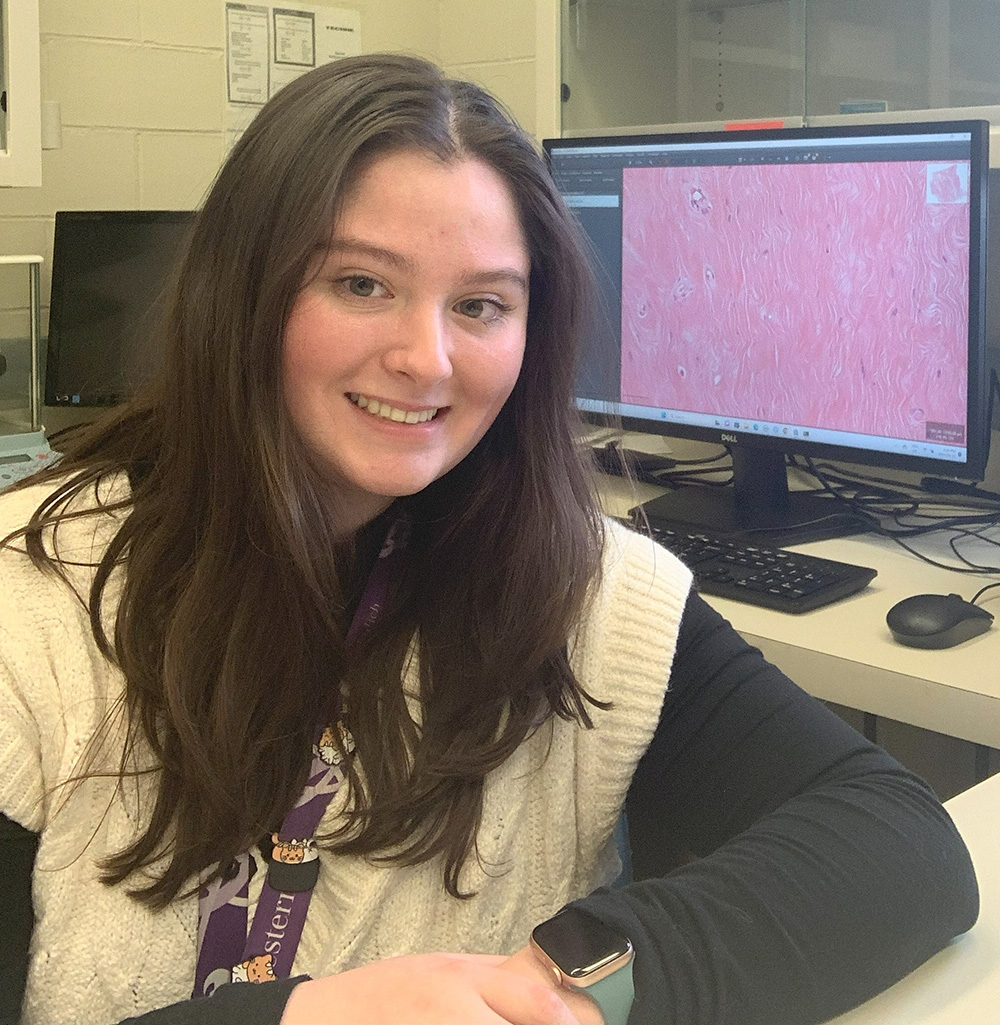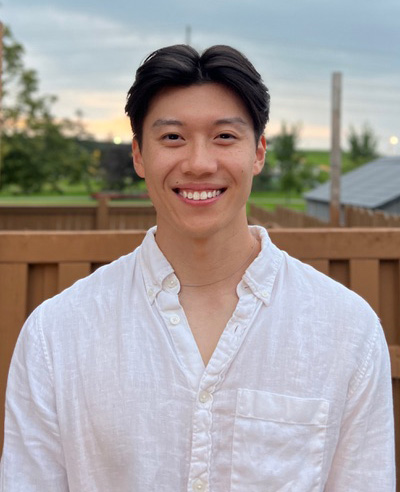Natalie Grindrod is an MSc student in the Department of Pathology & Laboratory Medicine at Western University. She is conducting BCC-funded breast cancer research under the mentorship of Dr. Muriel Brackstone and Dr. Matthew Cecchini at the London Health Sciences Centre/Western University.
- Could you share your motivation/personal connection to breast cancer research?
When I was younger my Aunt was diagnosed with breast cancer. Sadly, she lost her battle, leaving 3 young boys without a mother. After seeing and experiencing the impact this had on my family, I decided I want to help prevent others from experiencing the same trauma. This is why I got involved in breast cancer research and I hope that someday, the research and work I am doing will be able to help other breast cancer patients.
- What specific areas of breast cancer research are you currently focusing on, and why are they important?
I am focused on assessing a cell-based biomarker called tumour infiltrating lymphocytes in breast cancer. I am using a semi-automated approach with an artificial neural network to make the quantification and assessment of these lymphocytes efficient and easy. Semi-automation is key for the future of medicine with the ever-demanding workload that healthcare workers are burdened with. Using this method, I am assessing how these lymphocytes may impact breast patient survival, specifically in patients that have been treated with chemotherapy alone or a combination of chemotherapy and radiation. Discovering biomarkers and developing the best ways they can be implemented into breast cancer treatment allows patients to receive more personalized cancer care and have better quality of life.
- How do you see the future of breast cancer prevention, screening, diagnosis, treatment evolving through research?
I am excited to see the future of breast cancer research because it will involve medicine and treatments being tailored to each patient. It starts with screening ages being lowered and more inclusive, which is already happening in some places in Canada. Then at diagnosis the use of biomarkers and genetic testing will allow clinicians to learn the most they can about a patient’s disease, allowing them to customize treatments and hopefully increasing survival rates among all ages.
- What advice do you have for young individuals interested in pursuing a career in breast cancer research?
My advice for those interested in breast cancer research is to get involved as soon as you can! Reach out to various labs, professors, doctors and ask about volunteering. Get involved in fund raisers and participate where you can. People of all ages and backgrounds are valuable in the pursuit of furthering science and medicine.
- In your opinion, what role can public awareness and advocacy play in advancing breast cancer research and treatment?
Public awareness and advocacy are integral parts of advancing research and treatment. The best way to give patients optimal outcomes is to find cancer early. Optimal outcomes are greatly impacted by public awareness of breast cancer frequency, by identifying the signs and symptoms, as well as how to get help, advocating for yourself and your health. The goal of breast cancer research is to minimize pain and suffering, and to help more patients survive, so the best way to aid in breast cancer research is by raising awareness!




